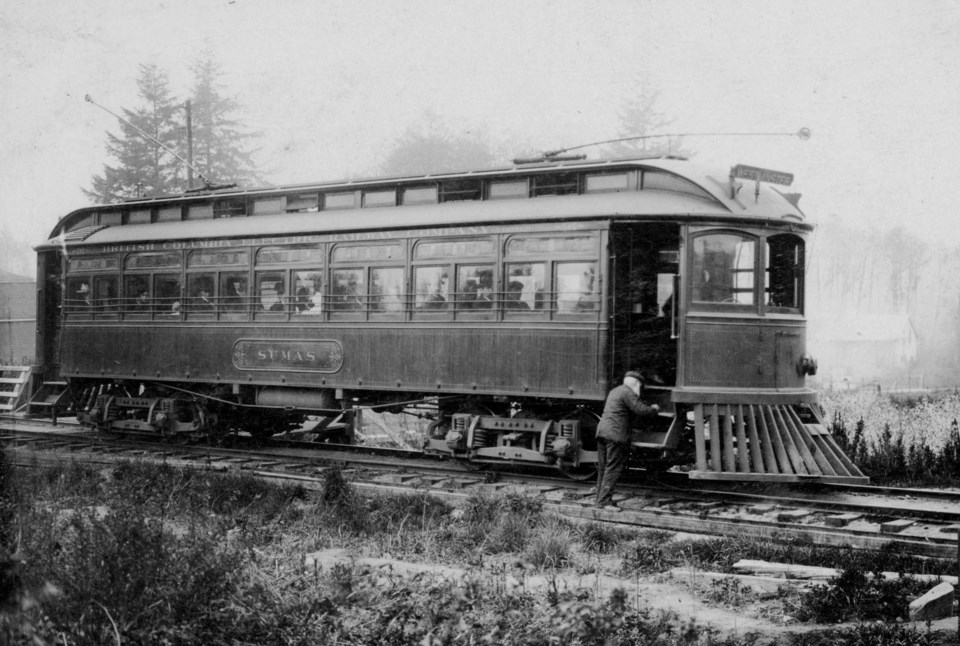Vancouver, like most cities, has had its share of tragic moments.
Some are quite famous, etched in the collective memory of those who have lived here for a long time or learned about the city's history.
For example, there was the Great Â鶹´«Ã½Ó³»Fire, which destroyed the city just two months after it was officially founded. Or the collapse of the Second Narrows Bridge, which fell with 79 people working on it, killing 18 of them. That's why it's now called the Ironworkers Memorial Bridge.
There were prolonged tragedies as well, like the internment of Japanese citizens during WWII, the Komagata Maru incident, and population (the city ended up issuing a formal apology covering 60 years of racism and "acknowledged the wrongdoings of past legislation, regulations, and policies of previous Â鶹´«Ã½Ó³»City Councils").
Other incidents haven't been remembered the same, for a variety of reasons, but they still had an effect on the city and often are memorialized around the city or metro area in some way. Here are just five you may not have heard of.
1.
This may not have been the largest disaster, but it was a very local and dramatic incident.
On Nov. 10, 1909, a street car called the Sumas was travelling between Â鶹´«Ã½Ó³»and New Westminster not far from the Lakeview stop, just south of Trout Lake. It was an important hub for the local community.
Unfortunately, a flatcar uncoupled from the train it was a part of and began to roll down the hill towards the lake. Loaded with timber, it gained momentum until it slammed into the Sumas. The timber slid off the flat car and into the passengers, killing 14 instantly. A 15th passenger died later of his injuries. Nine others were injured.
It was the worst transit disaster in Vancouver's history. A marker has been set up near the site of the collision.
2.
If you spend time on the sea wall in Stanley Park, you may have seen the Chehalis Monument, a Celtic cross not far from Brockton Point.
The Chehalis was a wooden ship that operated in the Â鶹´«Ã½Ó³»Harbour around the turn of the century.
, the 60-foot vessel was hit by the Princess Victoria, a 300-foot steamship. Between the collision and the subsequent sinking of the Chehalis, eight people died and another seven were injured. The survivors were rescued by the Brockton Point lighthouse keeper.
3.
Travelling around Metro Â鶹´«Ã½Ó³»wasn't as easy a century ago as it is now.
On Nov. 11, 1916, a "motor stage" (what would now be called a bus) crashed into the Fraser River as it attempted to cross a bridge at the foot of Fraser Street, killing nine people.
The bridge had a section that swung open for marine traffic to pass by. At the time of the incident, the gate was closed to vehicle traffic as a ship was passing through. The driver of the bus, George Smith, rammed into the gate and wasn't able to stop in time. It's believed speed was a factor.
The bus, which was driving from the Ladner Ferry into Vancouver, plunged into the river and killed the majority of those on board, including Smith. Three people survived.
4.
Just outside of Vancouver, in Burnaby, one of the worst rail accidents in the area occurred on . In all 23 people died, mostly men of Japanese descent.
It occurred just east of Burnaby Lake, when a boxcar full of rail workers plunged off the rails and into the Lost Creek ravine. Of the 43 people in the boxcar, more than half perished. They had been crammed in the boxcar, and weren't able to escape when the boxcar began to tumble.
The incident was also the subject of the racism common at the time, with some newspapers using racial slurs to refer to the people injured and killed. For example, one local newspaper noted in the headline that a "score of Japanese met death in the wreck" and "one white man badly injured." They then named the "one white man" and discussed who he was and his injury without mentioning the names of anyone else.
5.
For years it wasn't clear where this disaster actually took place.
On April 28, 1947, the flight with 15 people on board was headed to Vancouver's airport from Lethbridge. The pilot radioed the aircraft was approaching.
The plane then disappeared, along with everyone aboard.
While it was theorized by some it had crashed in the ocean, no oil slick was found, which is typical for a plane crash in the sea.
It wasn't until the 90s that Flight 3's true fate was discovered. A hiker found the wreck in 1992 but didn't report the discovery until 1994 when he realized no one else had found it.
The wreckage lays in the deep bush on Mount Elsay, just north of Mount Seymour. For more than four decades it sat in the forest undisturbed.
Now a pair of boulders inscribed with information about the crash and the names of the victims on Mount Seymour, with a view of the crash site.



